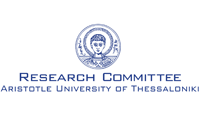Zoi Resta
Ionian University
Community interpreting in Greece: Power relations in intercultural communication
Abstract
At a time when thousands of refugees daily arrive in a country, there is an intense need for intercultural mediation. In order for intercultural communication to be effective, the people contributing to it −the interpreters− should have a clear image of their roles, responsibilities, professional profile and ethics. Only in this framework can the rights of all the participating parties be respected and secured.
Community interpreting, as it is usually called, constitutes a complex process that usually includes social factors, intercultural issues, participants of unequal status and other relevant limitations. Taking this context into account, we adopted in our research the theoretical approach that the interpreting scholar Franz Pöchhacker suggests, according to which interpreting is analyzed as intercultural mediation(2009: 134). More specifically, we focused on the developing dynamics during the intercultural communication in the context of community interpreting, keeping in mind the power imbalances community interpreters in Greece have to face. The data of our research have been collected from questionnaires distributed to community interpreters in Greece in 2016. The results are going to contribute to the drawing of conclusions regarding ethics, the status of the modern community interpreter, and his/her role when called to deal with the dynamics developed among the speakers in a community interpreting session.
Indicative Bibliography
- Furmanek, Olgierda&Tipton, Rebecca (2016). Dialogue Interpreting: A guide to Interpreting in Public Services and the Community. New York: Routledge.
- Ioannidis, Anastasios & Resta, Zoi (2016). “Professionalization opportunities for community interpreting in Greece: a sociological approach.” 8th EST Congress 2016, 14th to 18th September 2016, Aarchus. Book of abstracts: 215.
- Pöchhacker, F. (2009). Issues in Interpreting Studies. In: J. Munday (ed.) The Routledge Companion to Translation Studies. London/New York: Routledge, 128-140.
- Pöchhacker, Franz (2000) “The community interpreter’s task: Self-perception and provider views” in Carr, S. & Roberts, R. & Dufour, A. & Abraham, D. (2000), pp. 49-65.
- Pöllabauer, Sonja (2007) “Interpreting in asylum hearings,” in Dimitrova, Birgitta Englund & Nilsson, Anna-Lena and Wadensjö, Cecilia (eds) (2007), pp. 39-52.
Keywords: community interpreting, intercultural communication, intercultural mediation







